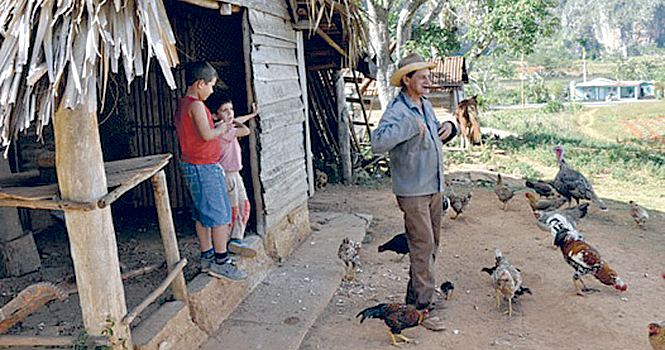KSU expands relationships with Brazil, Cuba
Kent State students will soon have more opportunities to study, research and travel in more countries.
Marcello Fantoni, associate provost of the Office of Global Education, said the university is in the process of adding a recruitment office in Brazil, and the university’s relatively new Cuban Studies Institute is building a relationship with a previously less-accessible country.
Two professors also are offering trips to those countries with classes this spring. Anne Morrison, associate professor of lifespan development and education sciences and director of the Cuban Studies Institute, will teach a course called Relational Learning in Cuba, and journalism professor Gary Hanson is taking students to Brazil for a the JMC course International Storytelling.
International Storytelling is a course with 16 to 18 students, Hanson said, and those students will travel to Brazil for 15 days before and during spring break. While abroad, they will partner with Brazilian students at the Pontifical Catholic University of Paraná to work on storytelling projects. Hanson said students will experience the culture of a country that, along with China, India and Russia, is a growing economy.
“In your lifetime, you will be increasingly connected to what happens to those countries,” Hanson said. “I think it’s really important for journalists to know something about them, so that’s why I think this class is very good.”
Fantoni said he is traveling to Brazil Tuesday to hire a consultant to set up the recruitment office Kent State wants to put in Curitiba, a large city in the Brazilian state of Paraná. Hanson’s International Storytelling class is traveling to that same city.
Fantoni said there are currently only 19 Brazilian students at Kent State, but the plan is to double that number within a year. He said depending on when it passes regulations, the office should be set up by April. Morrison said her Relational Learning course and the Cuban Studies Institute are both efforts by Kent State to work with a country that isn’t so far away.
“All universities need to reach out to other populations to enrich what we are here … and it’s a little easier, I would say, to go north to south than to go all the way across the pond,” she said.
Her course will teach students how to do a qualitative research project in which they collect data, through conducting interviews and reading literature, about some aspect of Cuba. Though not all the students in the class have to go to Cuba, the students who do will fly from Miami to Havana for $2,550 (plus the cost of the hotel room) during spring break.
“The students will have a face-to-face experience in Cuba for 10 days, and be up close and personal with the Cuban people and learn about what it is that is interesting to them,” Morrison said.
It’s difficult to travel to Cuba, she said, because the United States has an economic embargo against the country, but the institute and the class make it easy to travel there. She said Cuba is an interesting country to public health and education majors particularly because of its health care system and widespread education, but the course is open to everyone.
Fantoni said investing in Cuba is worthwhile for the university.
“Cuba is not an easy country [to visit, but] … if the political situation in Cuba would change, it could become a very good partner for international education,” Fantoni said. “If Kent State would be there before other universities, that could be a great advantage for us.”
Kent State also has other plans within Cuba. The Office of Institutional Advancement is organizing an alumni fundraising tour to Cuba in 2013, and the College of Public Health is interested in developing a short-term faculty-led study abroad program to Cuba.
Fantoni said the university is interested in these expansions because the modern world requires students to have an international education.
“Everyone today needs an international education to be more professionally prepared for your future job, but also because we are now citizens of the world and we need to broaden the students’ minds,” he said.
In addition, he said, the more international students the university brings to Kent State, the more the university’s enrollment grows and the more diverse its community becomes.
“The more we make Kent into an international environment, the more we also help our students who cannot afford going abroad to develop a little bit of experience with international students,” Fantoni said.
Contact Carrie Blazina at [email protected].



